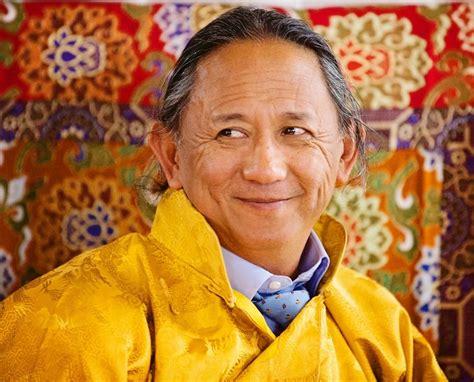A Quote by John Tillotson
In our pursuit of the things of this world, we usually prevent enjoyment, by expectation; we anticipate our own happiness, and eat out the heart and sweetness of worldly pleasures, by delightful forethoughts of them; so that when we come to possess them, they do not answer the expectation, nor satisfy the desires which were raised about them, and they vanish into nothing.
Related Quotes
Imagine craving absolutely nothing from the world. Imagine cutting the invisible strings that so painfully bind us: what would that be like? Imagine the freedoms that come from the ability to enjoy things without having to acquire them, own them, possess them. Try to envision a relationship based on acceptance and genuine care rather than expectation. Imagine feeling completely satisfied and content with your life just as it is. Who wouldn't want this? This is the enjoyment of non-attachment.
The key is realizing - and believing - that this world is not your home. If you and I ever hope to free our lives from worldly desires, worldly thinking, worldly pleasures, worldly dreams, worldly ideals, worldly values, worldly ambitions, and worldly acclaim, then we must focus our lives on another world.
Notice carefully every word here. It is not our prayer which draws Jesus into our hearts. Nor is it our prayer which moves Jesus to come in to us. All He needs is access. He enters in of His own accord, because He desires to come in. To pray is nothing more involved than to let Jesus into our needs, and permitting Him to exercise His own power in dealing with them. And that requires no strength. It is only a question of our wills. Will we give Jesus access to our needs?.
To love women, to love our vaginas, to know them and touch them and be familiar with who we are and what we need. To satisfy ourselves, to teach our lovers to satisfy us, to be present in our vaginas, to speak of them out loud, to speak of their hunger and pain and loneliness and humor, to make them visible so they cannot be ravaged in the dark without great consequence, so that our center, our point, our motor, our dream, is no longer detached, mutilated, numb, broken, invisible, or ashamed.
The world has proclaimed the reign of freedom, especially of late, but what do we see in this freedom of theirs? Nothing but slavery and self-destruction! For the world says: "You have desires and so satisfy them, for you have the same rights as the most rich and powerful. Don't be afraid of satisfying them and even multiply your desires."
The pursuit of happiness is a matter of choice...it is a positive attitude we choose to express. It is not a gift delivered to our door each morning, nor does it come through the window. And it is certain that our circumstances are not the things that make us joyful. If we wait for them to get just right, we will never laugh again.
That the happiness of man may still remain imperfect, as wants in this place are easily supplied, new wants likewise are easily created; every man, in surveying the shops of London, sees numberless instruments and conveniencies, of which, while he did not know them, he never felt the need; and yet, when use has made them familiar, wonders how life could be supported without them. Thus it comes to pass, that our desires always increase with our possessions; the knowledge that something remains yet unenjoyed, impairs our enjoyment of the good before us.
Peace requires us to surrender our illusions of control. We can love and care for others but we cannot possess our children, lovers, family, or friends. We can assist them, pray for them, and wish them well, yet in the end their happiness and suffering depend on their thoughts and actions, not on our wishes.
Nothing excites men's curiosity so much as Mystery, concealing things which they desire to know; and nothing so much increases curiosity as obstacles that interpose to prevent them from indulging in the gratification of their desires. Of this the Legislators and Hierophants took advantage, to attract the people to their sanctuaries, and to induce them to seek to obtain lessons from which they would perhaps have turned away with indifference if they had been pressed upon them.





































